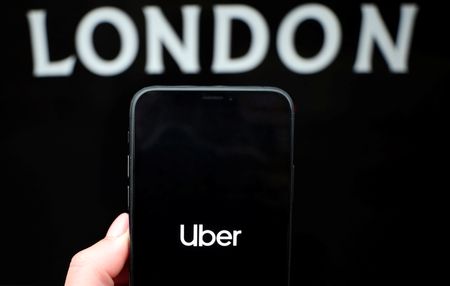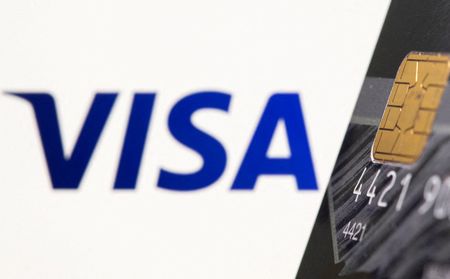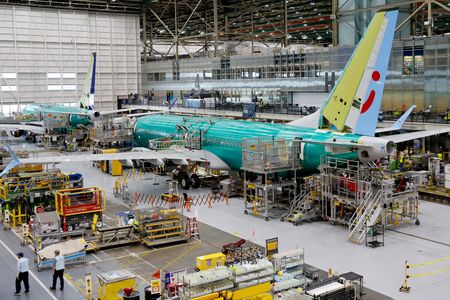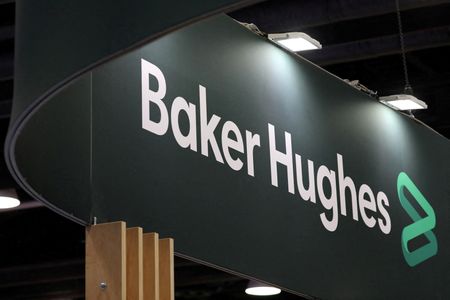LONDON (Reuters) -Uber’s rival taxi operators in England and Wales will not face a 20% VAT charge on their profit margins outside of London after the ride-hailing firm lost its appeal on Tuesday against a previous ruling.
Uber had sought a declaration that rival private-hire taxi operators enter into a contract with passengers, meaning operators must charge a 20% value added tax (VAT) outside London as Uber is required to do.
It brought the case after a 2021 Supreme Court ruling that Uber drivers were workers, making them eligible for the minimum wage and holiday pay, and making Uber subject to VAT for rides.
Uber sought to have the same terms applied to rival operators and the High Court ruled in its favour last year. The ruling applied to rides in England and Wales outside London, which has a different regulatory regime.
However, that ruling was reversed by the Court of Appeal in July 2024 following a challenge by private hire operators Delta Taxis and platform Veezu.
Uber then brought an appeal to the Supreme Court, which on Tuesday unanimously dismissed the appeal, ruling that operators are not required to enter into a contract with passengers.
An Uber spokesperson said the ruling “confirms that different contractual protections apply for people booking trips in London compared to the rest of England and Wales”, but has “no impact on Uber’s application of VAT”.
Delta Taxis’ lawyer Layla Barke Jones, from Aaron & Partners, said a victory for Uber would have badly affected many private hire operators, adding: “A crisis has been averted.”
Veezu said the ruling avoided significant fare increases, with its chief legal officer Nia Cooper saying the decision was “a triumph for the UK private hire sector”.
In a separate case, Estonian ride-hailing and food delivery startup Bolt this year defeated an appeal by Britain’s tax authority HMRC on what it has to charge VAT at 20%.
HMRC has since been granted permission to challenge the ruling that Bolt is only liable for VAT on its margin, rather than the full cost of the trip, at the Court of Appeal.
Kimberly Hurd, Bolt’s senior general manager for the UK, welcomed the Supreme Court’s decision on Uber’s appeal, but said a new regulatory framework was needed so that rules were consistent across the UK.
(Reporting by Sam Tobin; editing by Sarah Young and Susan Fenton)










